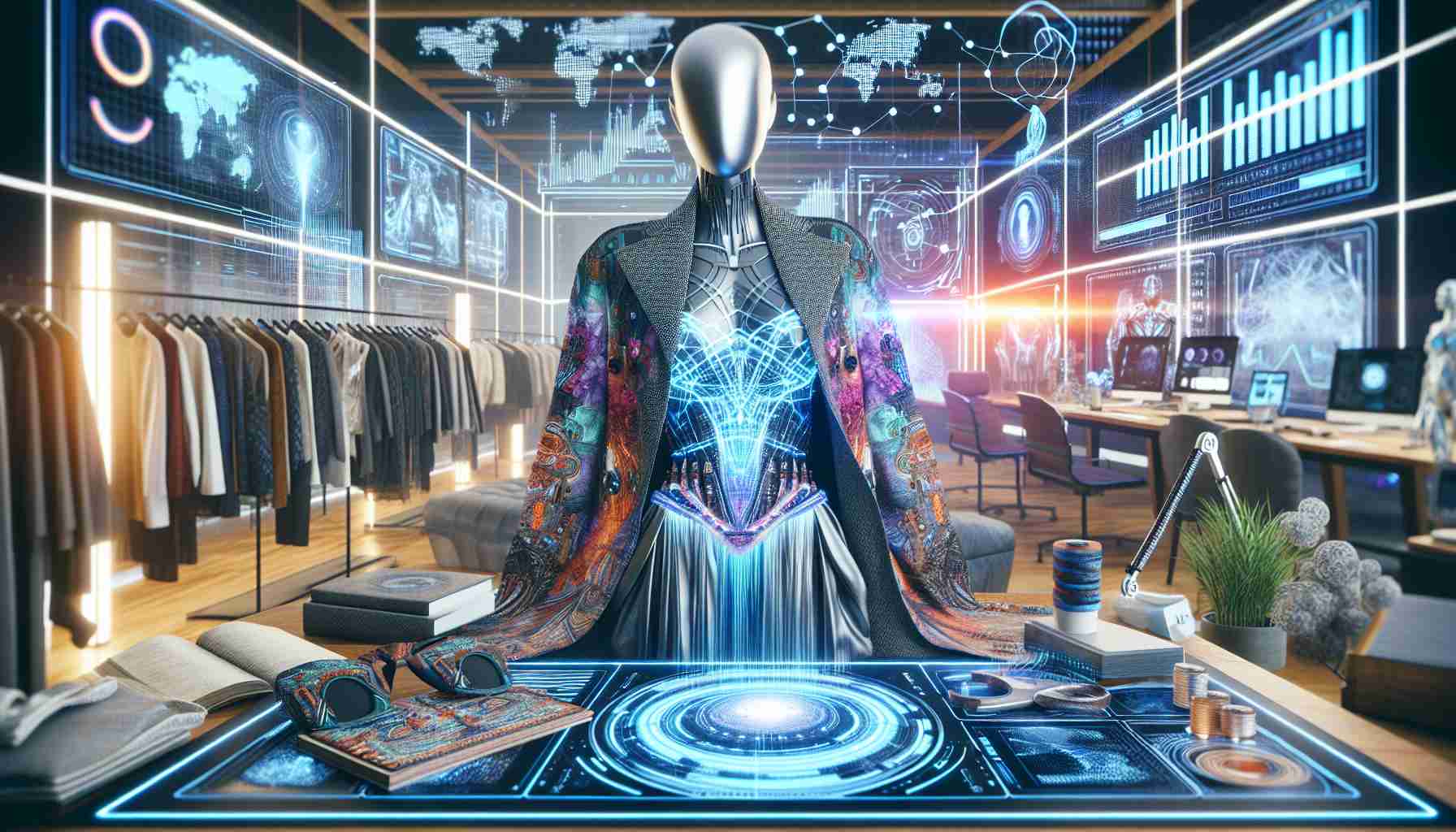- Fashion and AI are converging, with algorithms emerging as innovative designers.
- Ludovic Rigot’s Movalib enhances the automotive industry through a digital assistant for mechanics.
- Laurent Daudet’s Lighton is integrating AI into business, fostering potential and disruption.
- Aude Durand discussed France’s AI evolution, emphasizing strategic investments and innovations.
- Nicolas Dufourcq of Bpifrance outlined financial strategies to strengthen France’s AI sector.
- Thierry Coulhon highlighted the role of academia in advancing France’s AI ambitions internationally.
- The discussions emphasize a transformative partnership between AI and traditional industries.
- Embracing AI leads to adaptation and reinvention, promising a thrilling and hopeful future.
On a crisp February morning, the fast-evolving landscape of fashion met the cutting-edge world of artificial intelligence, painting an exhilarating vision of the future. Imagine a realm where algorithms are the new designers, crafting trends with precision and flair. This was the visionary discussion hovering in the airwaves as BFM Business anchored conversations that are reshaping industries and minds alike.
Amidst the lively exchanges, Ludovic Rigot stepped into the spotlight, infusing the day with a tale of digital innovation aimed straight at the heart of the automotive industry. His company, Movalib, empowers mechanics with a seamless digital assistant, streamlining operations and blazing trails for efficiency. The promise? A world where routine technicalities bow to smooth, tech-driven simplicity.
Equally evocative were insights from entrepreneurial luminaries like Laurent Daudet of Lighton and Aude Durand from iliad. Daudet’s enterprise is weaving AI intricacies into the fabric of business, a narrative threaded with potential and disruption. Meanwhile, Durand explored France’s AI metamorphosis, highlighting national advancements and pinpointing strategic investments shaping the future.
From the corridors of Bpifrance, Nicolas Dufourcq painted a strategic roadmap backed by significant financial commitments to bolster AI’s French odyssey. Competing on the international stage, Thierry Coulhon’s insights underscored how academia could fuel France’s aspirations against titans like China and the U.S., emphasizing education and startup support.
As debates ignited screens and conversations echoed in boardrooms, a singular truth emerged: the alliance of AI with traditional sectors promises not just transformation, but a vibrant reimagining of our world. These dialogues signify that embracing technology’s pulse fosters not only adaptation but reinvention, heralding a future that’s equal parts thrilling and hopeful.
How AI is Transforming Traditional Industries: Key Insights and Forecasts
Exploring AI in Fashion and Automotive Industries
The article from BFM Business showcases the transformative impact of artificial intelligence (AI) across various industries, highlighting the fashion and automotive sectors as prime examples. However, there are several other related aspects and detailed insights worth considering:
How-to Integrate AI in Traditional Industries
To effectively integrate AI, these industries can start by:
– Identifying Processes: Determine which operations can benefit from automation or data-driven decision-making.
– Investing in Technology: Acquire AI tools tailored to industry-specific needs.
– Training Workforce: Equip employees with necessary AI knowledge and skills.
– Collaborating with AI Experts: Partner with tech firms to develop customized AI solutions.
Pros and Cons of AI Integration
– Pros:
– Increased Efficiency: Automation leads to faster and more accurate processes.
– Data Insights: Enhanced decision-making from data analysis.
– Cost Reduction: Savings from reduced manual labor and error rates.
– Cons:
– High Initial Costs: Significant upfront investment required.
– Security Concerns: Risks of data breaches.
– Workforce Displacement: Potential job losses due to automation.
Market Forecasts and Trends
The AI market is poised for significant growth. By 2025, the global AI market could surpass $500 billion, driven by advancements in machine learning, natural language processing, and robotics. Key trends include increased personalization in fashion and predictive maintenance in automotive.
Innovations and Future Predictions
AI innovations such as generative design in fashion and autonomous vehicles in the automotive industry are revolutionizing these fields. In the future, AI’s role is expected to deepen, with virtual fashion designers and self-diagnosing car systems becoming mainstream.
Limitations and Controversies
While AI’s potential is vast, limitations such as ethical concerns in algorithmic decision-making and data privacy issues remain. Controversies often surround AI bias and the socio-economic impacts of automation.
Security Aspects
Data security is critical when integrating AI, with industries needing robust cybersecurity frameworks to protect sensitive information. AI-driven systems should prioritize security to build consumer trust.
Sustainability in AI Development
AI can contribute to sustainability efforts by optimizing resource use and reducing waste. However, the environmental impact of energy-intensive AI training processes needs to be managed.
Key Use Cases in Fashion and Automotive Sectors
– Fashion: AI-powered trend forecasting, personalized shopping experiences, and supply chain optimization.
– Automotive: Autonomous driving technology, predictive maintenance tools, and enhanced customer experiences.
Market Analysis of AI in France
France is investing heavily in AI, positioning itself as a leader in AI development in Europe. The government’s strategic investments and strong academic support are crucial in fostering a robust AI ecosystem.
Additional Resources
For more information on how AI is impacting various industries, consider visiting:
– BBC
– Bloomberg
– Forbes
These resources offer extensive coverage on AI developments and market dynamics.
